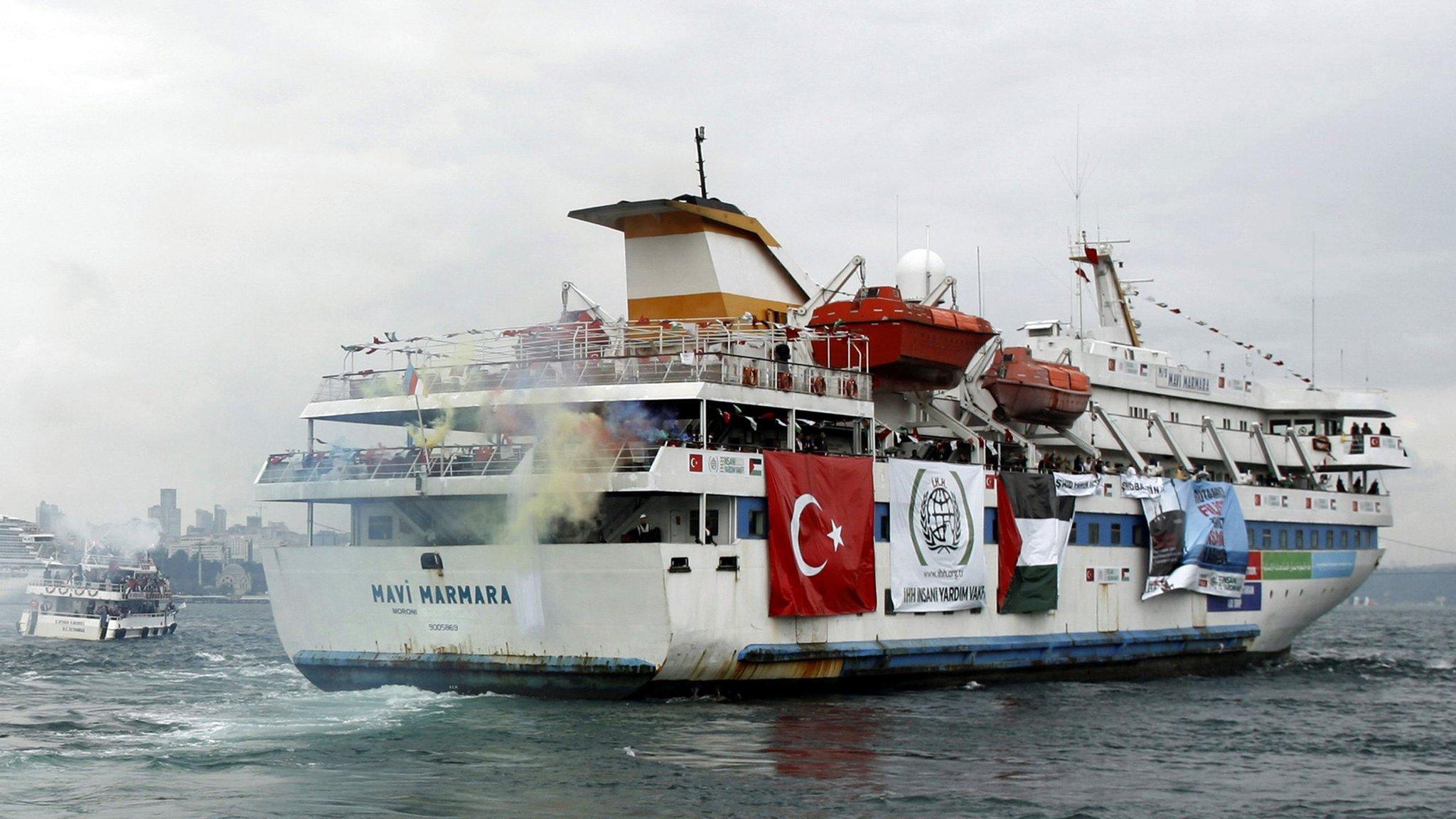Turkey plays diplomatic chess in Middle East
- Published
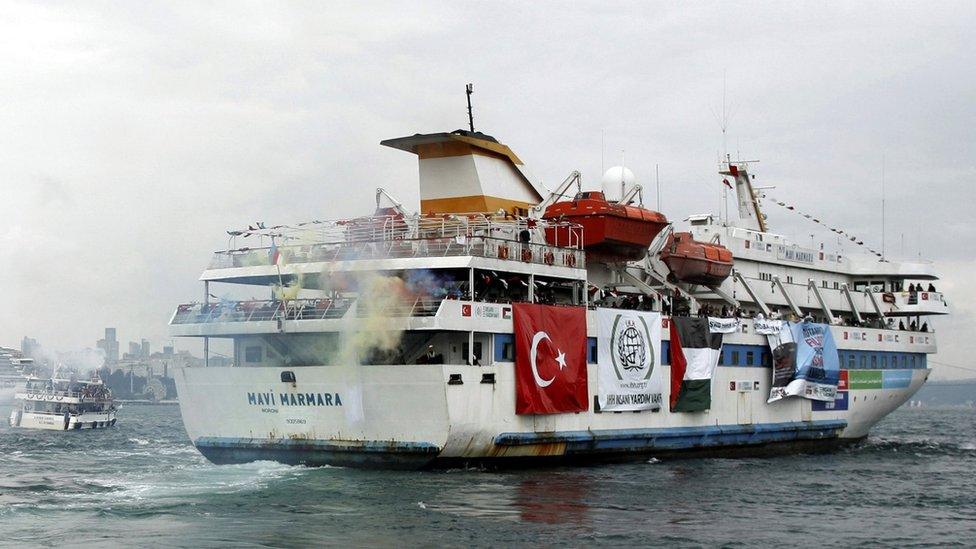
Ten Turkish activists were killed in clashes with Israelis commandos on the Mavi Marmara
The normalisation agreement signed between Israel and Turkey creates what might be termed a "new normal".
There will be no going back to the close strategic ties of the 1990s - major arms deals, for example, are unlikely.
The formal improvement of ties, which will lead to the return of ambassadors, has been accompanied by a more recent effort by the Turks to reconcile with Russia.
President Recep Tayyip Erdogan has offered a full apology to Moscow for Turkey's shooting down of a Russian warplane on the Turkish-Syrian frontier in November 2015.
So what is going on here? Why the Turkish diplomatic moves? What do Israel and Turkey gain from their agreement? And how is all of this influenced by the course of politics in the region?
Israel and Turkey - both democracies, non-Arab states, pro-Western and close to the Americans - were natural military allies.
This video shows a plane falling to the ground on the Syrian border with Turkey
There was a remarkable degree of cooperation between them, and Turkey purchased a number of major weapons systems from Israel.
Their air force pilots used to train together.
It was the Mavi Marmara episode in May 2010, when Israeli naval commandos boarded a Turkish-flagged aid vessel which was aiming to breach Israel's naval blockade of Gaza, that caused the rupture.
In the fighting which followed, 10 Turkish activists on the ship were killed.
But relations were already cooling in the aftermath of the Islamist-rooted AKP Party's initial accession to power in 2002.
So what has now changed?
Well, Israel and Turkey have been negotiating a rapprochement for some years - indeed many Israeli analysts believe that Prime Minister Benjamin Netanyahu could have got a deal similar to this much sooner.
Issues of blame, compensation, national pride and longer term strategy were all bound up together.
But, over recent years, Turkey's diplomatic position has been dramatically weakening in the region.
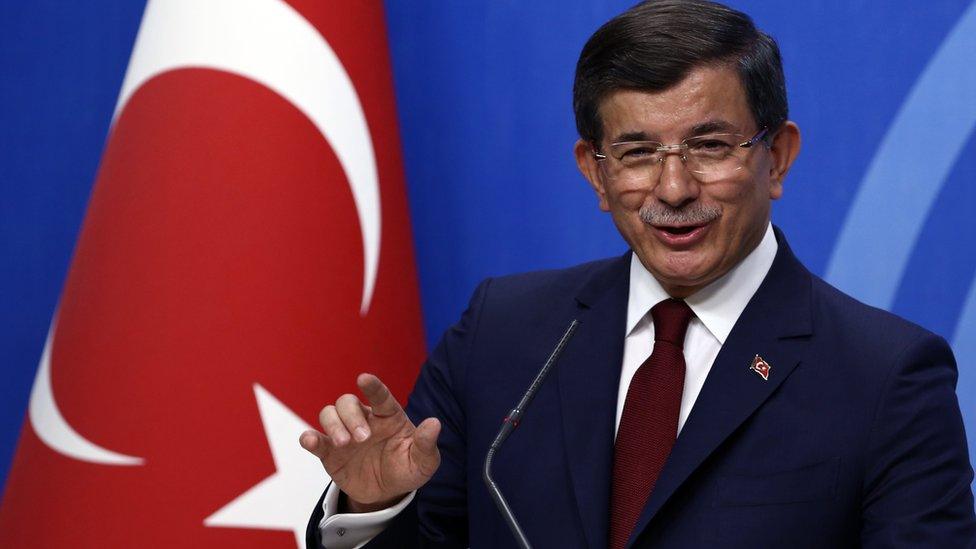
Ahmet Davutoglu drew up a blueprint for a new foreign policy in Turkey
I remember meeting Ahmet Davutoglu (a future AKP Foreign Minister and Prime Minister) in Istanbul, soon after the AKP came to power.
An academic and thinker, he proudly showed me some of his most influential writings, the blueprint for a new foreign policy for Turkey that would see its rapidly growing economy boom through pursuing a diplomacy of zero problems with all its neighbours.
In the turbulent waters of the Middle East, it sounded too good to be true - and it was, though the economic boom was real enough.
Some of Turkey's Arab allies wondered if this was simply a new Ottomanism - Turkey, it should be remembered, was, before World War One, the dominant power in the region.
Kurdish tensions
Now, the Syrian crisis has dealt a body-blow to Turkey's ambitions.
Turkey was an active advocate for the removal of Syrian President Bashar al-Assad and has armed and funded a variety of groups to that end.
Its activism has caused strains with the United States, which no longer has the leverage in the region it once had and, in any case, sees the President Assad's future as less of a priority than the war against so-called Islamic State (IS).
Washington's support for Kurdish forces - the most capable fighters against IS - caused alarm in Ankara.
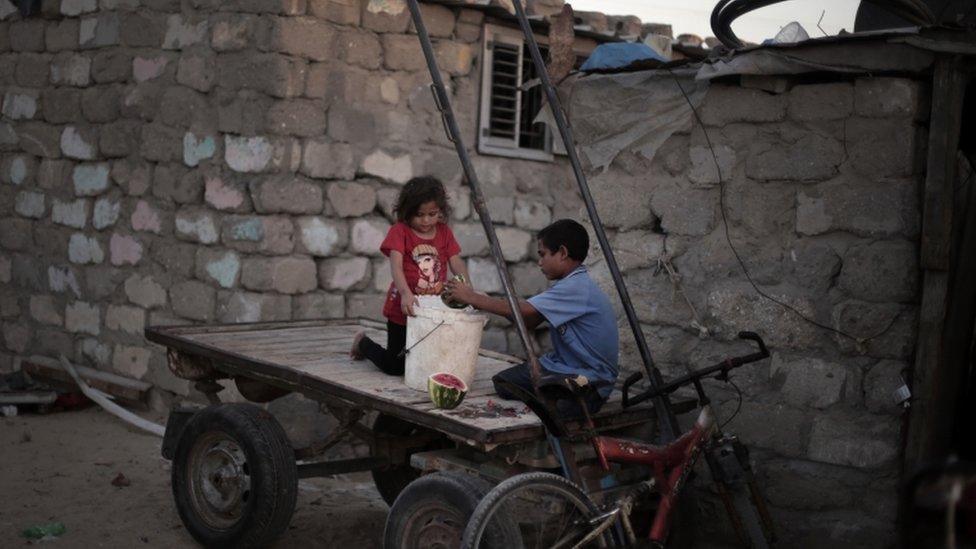
Turkey will play a role in sending aid to the Gaza Strip
From a Syria-focused policy, the Turkish government now appears to be recalibrating its approach, placing the emphasis upon containing Kurdish political ambitions.
Kurdish PKK warns Turkey of long fight for freedom
Turkey v Syria's Kurds v Islamic State
If it is going to influence events, it needs friends - hence the attempted make up with Russia (President Assad's main backer) and the deal with Israel, which carries "Brownie points" with Washington.
Expect further behind-the-scenes efforts by Ankara to improve ties with other key regional players such as Egypt.
In bilateral terms, Israel and Turkey's strong economic relationship may now prosper - there is talk of potential pipeline deals for Mediterranean gas.
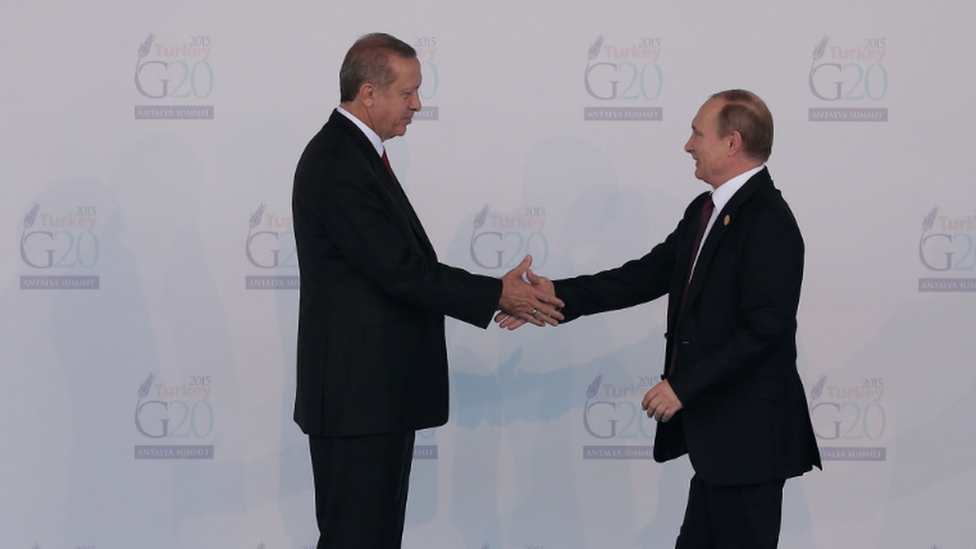
Turkey is attempting to rebuild relations with Russia
And by granting Turkey a special position in developing the Gaza Strip, Israel hopes to gain leverage over Hamas to avert a renewed war to its south.
Retaining a divided Palestinian leadership may also suit Prime Minister Netanyahu.
Overall, this rekindling of ties is no surprise.
The Middle East is in chaos and will be for the foreseeable future.
Even if peace comes, a series of broken states will take years to patch together and a level of funding for reconstruction that may simply not be there.
The non-Arab actors remain the key players - both Israel and Turkey are wary of Iran's ambitions in the region.
The Syria crisis has only amplified Tehran's role.
It makes absolute sense for Israel and Turkey to renew a proper dialogue.
And both are courting Moscow too, for the Syrian crisis has also given Russia a significant role in the region, at a time when confidence in Washington's approach is at an all-time low.
- Published23 August 2016
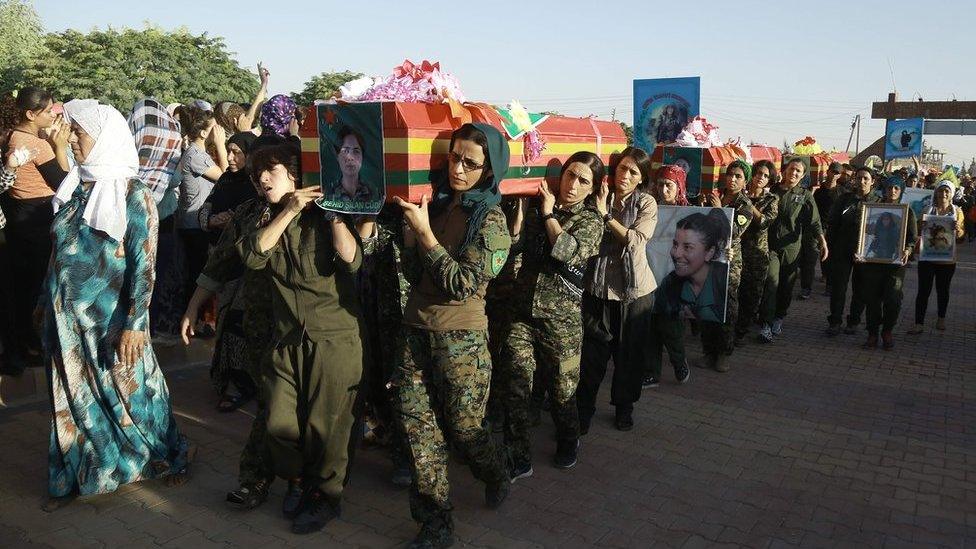
- Published27 June 2016
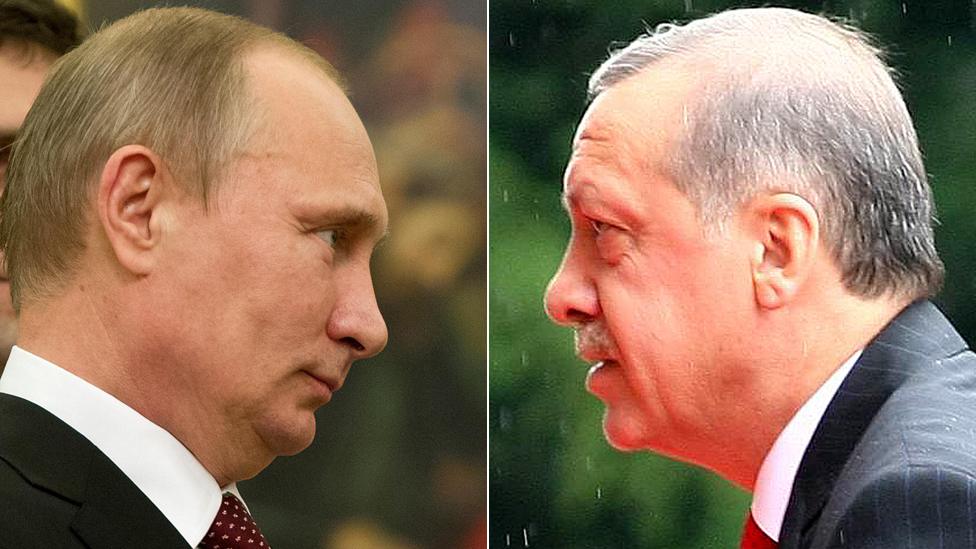
- Published27 June 2016
